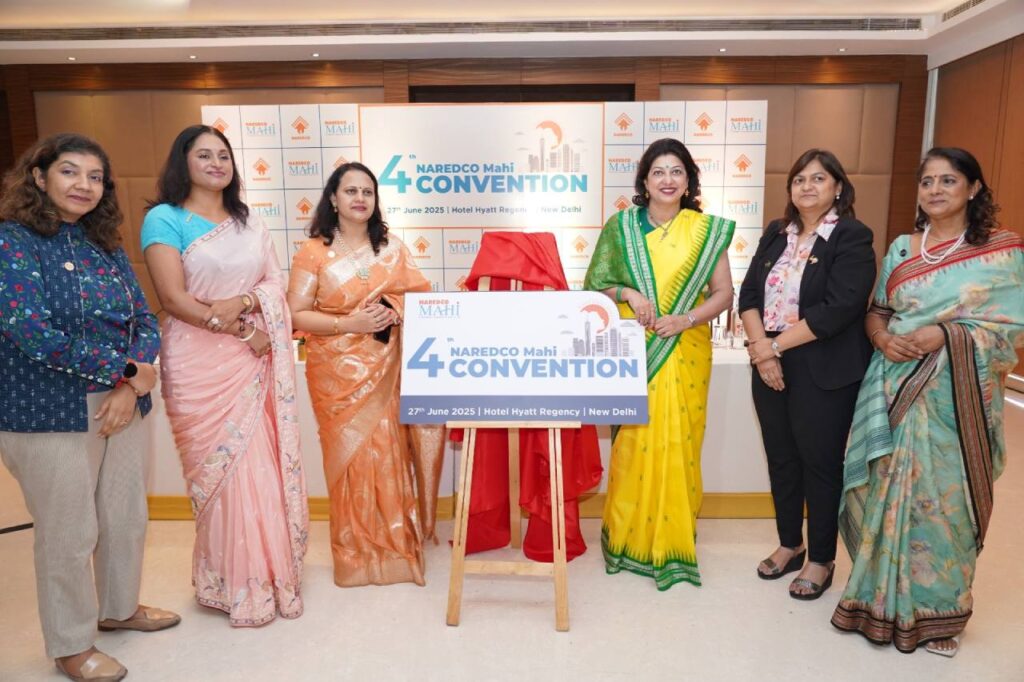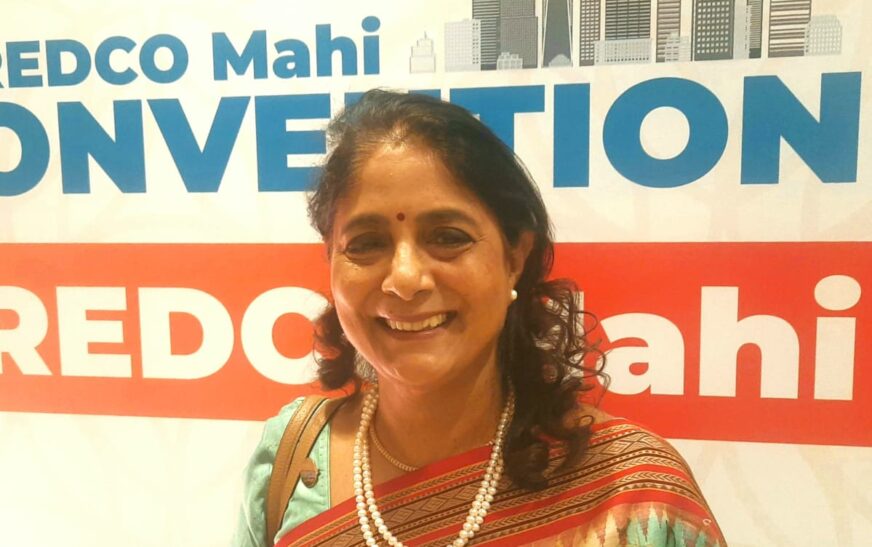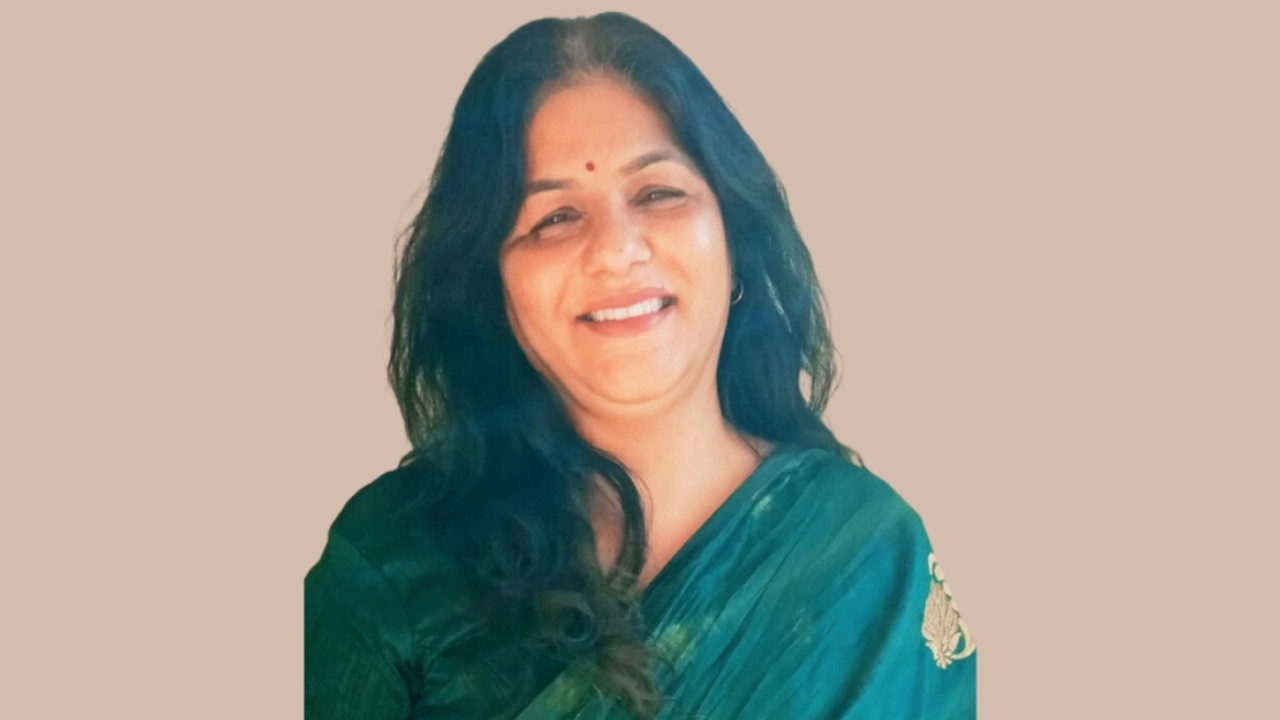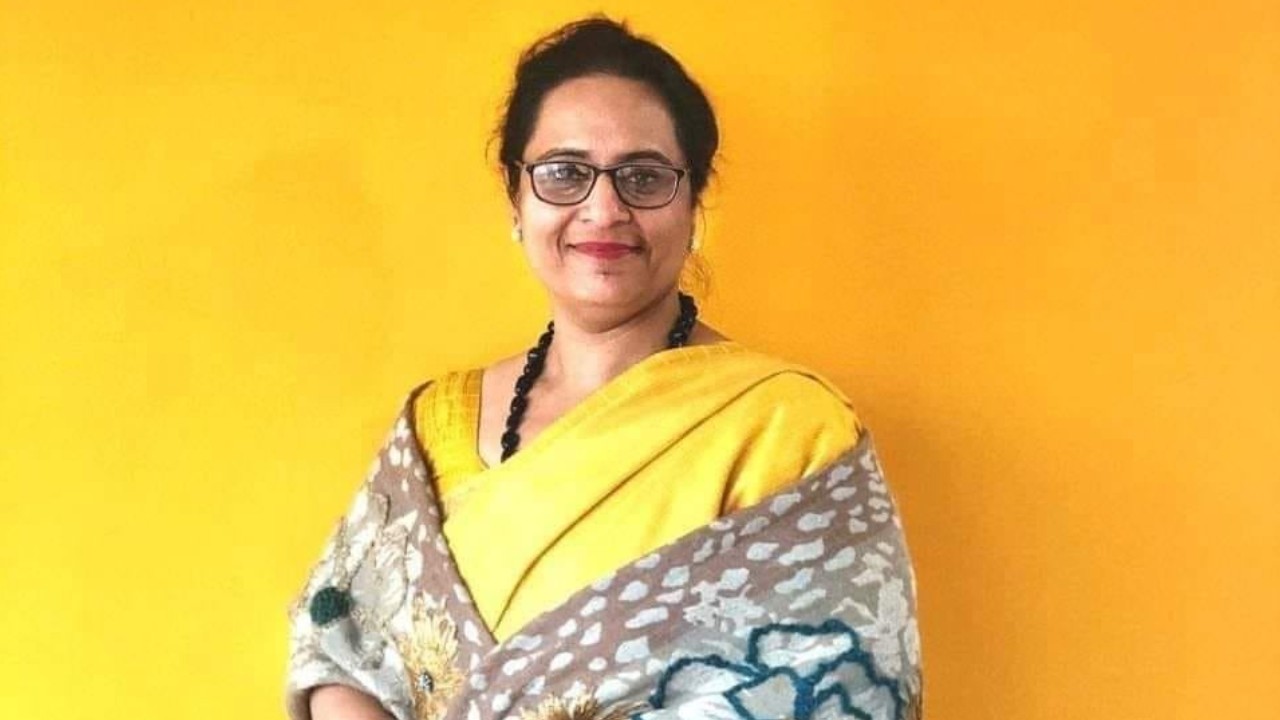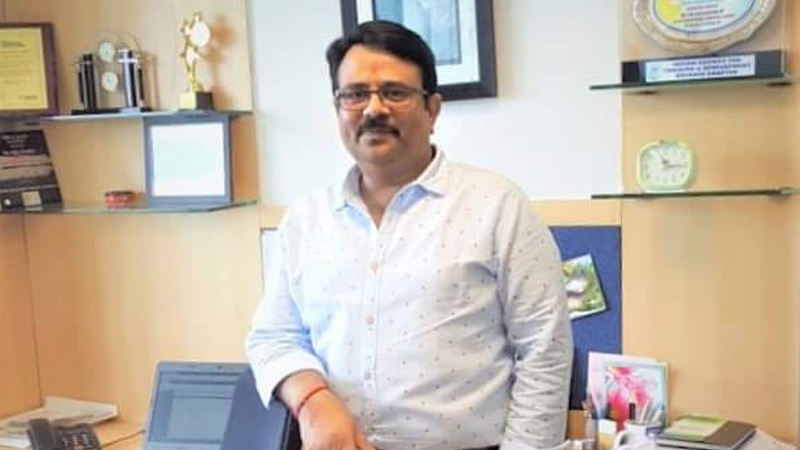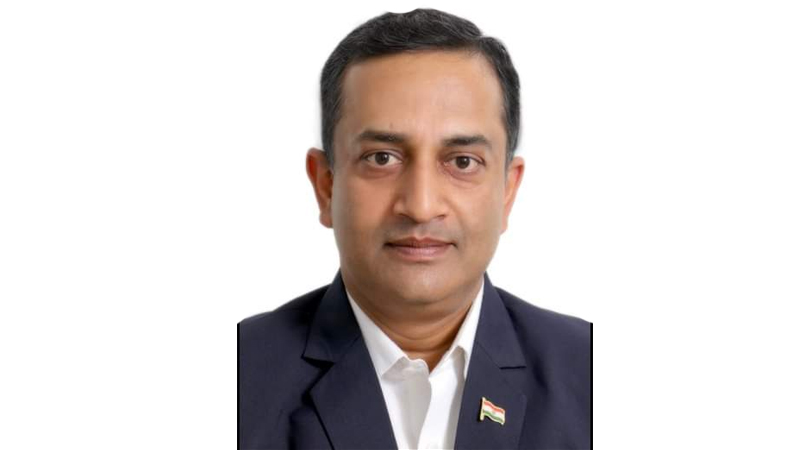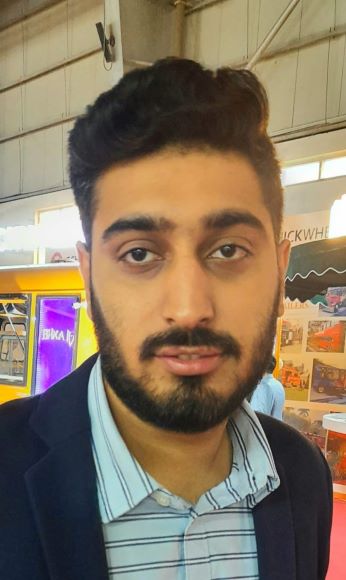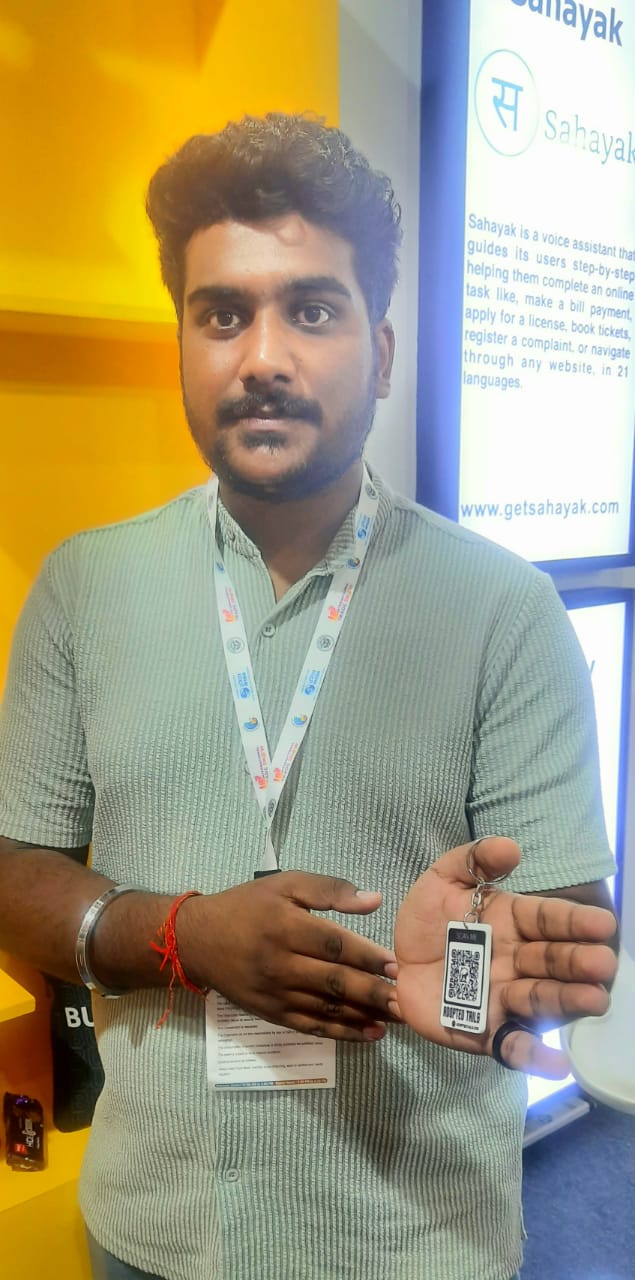NAREDCO Mahi, the women’s wing of the National Real Estate Development Council (NAREDCO), functions under the Ministry of Housing and Urban Affairs, Government of India. It actively champions the rise of women leaders in real estate by driving policy advocacy, enabling entrepreneurship, and strengthening capacity-building frameworks. Through high-impact initiatives—from international study tours to its monthly “Mahi Talks”—Mahi further cultivates innovation, leadership, and collaboration across the industry.
Backed by direct engagement with top government officials and steered by an accomplished leadership team, Mahi accelerates gender equity and sustainable development in India’s built environment. It has also become a transformative force—amplifying the influence of women who are shaping the future of real estate with vision, skill, and determination.
In an exclusive interaction with The Interview World at the curtain raiser to the 4th NAREDCO Mahi Convention, to be hosted on 27th June 2025 in New Delhi, President-Elect Chitra S. Jain—also a Visiting Faculty at the School of Planning and Architecture—lays out her strategic roadmap for Mahi. Furthermore, she highlights the critical reforms she aims to spearhead within the real estate sector and calls upon builders and developers to embrace a more inclusive, gender-balanced future. The following insights from her thought-provoking conversation reveal her bold vision and commitment to meaningful change.
Q: As the President-Elect of NAREDCO Mahi, what is your strategic vision for the organization?
A: To begin with, we’re focused on scaling our presence. As I mentioned, we’re currently approaching 200 members. My vision is to grow that number to at least 500 within the next two years. Simultaneously, we aim to establish as many Mahi chapters as there are states in India. At present, our core activity is concentrated in Delhi and Maharashtra.
However, momentum is building. Our Odisha chapter has become highly active. We’ve also launched chapters in Uttarakhand, Tamil Nadu, and Karnataka. In the south, Andhra Pradesh is gaining traction, and we see strong potential in Hyderabad. We are now looking to activate Gujarat and other key regions.
The larger goal is clear—Mahi must have a footprint in every state. We envision a nationwide network of empowered women professionals representing Mahi across the country. This expansion is not just about numbers; it’s also about meaningful presence and representation.
Beyond scale, Mahi serves as a strategic think tank for the real estate sector. We are not limited to builders or developers. Our members include academicians, legal experts, consultants, sales and marketing professionals, and more. You name the expertise—we have it. This diversity is our strength, allowing us to bring multifaceted insights and solutions to the table.
Q: Beyond quantitative growth, what qualitative transformations do you aspire to drive within the organization and the industry at large?
A: We’re not just focused on increasing our numbers—we’re also positioning Mahi as a dynamic think tank. As I mentioned earlier, our strength lies in the diversity of our members. Women from every vertical of the real estate ecosystem are part of our network. Real estate isn’t limited to builders and developers; it encompasses design, manufacturing, legal, sales, marketing, HR, and much more.
At Mahi, we represent this entire spectrum. From the outset, we’ve harnessed this cross-functional expertise to drive impactful initiatives. We’ve established four dedicated verticals to streamline our efforts.
The first focuses on Skilling, equipping women with essential tools and competencies for the sector. The second, Dolphin Tank, supports early-stage startups and entrepreneurial ventures. The third, Nirman Jal Prayas, is a water conservation initiative aimed at sustainable water management. And the fourth, Sashvat Nirman, is our commitment to long-term environmental sustainability.
Importantly, we’ve been advocating for sustainability over the past three years. In December, we formalized it into a full-fledged vertical. Now, we’re also stepping into a critical role—as the policy arm of NAREDCO on issues related to sustainability and innovation.
We are actively collaborating with the Ministry to increase awareness and demand for green buildings. Our goal is to serve as a vital bridge—linking government vision, market needs, community aspirations, and the real-time efforts of developers and builders.
Through these four verticals, we aim to deliver the knowledge, skills, and strategic insight needed to drive responsible and inclusive growth in India’s real estate sector.
Q: As someone committed to expanding the knowledge base for women’s integration in real estate, what is your vision for driving meaningful change in the sector?
A: To me, knowledge is the greatest strength a woman can possess.
Before we even talk about inclusion, diversity, or integration, we must first build a solid foundation of knowledge. Once that foundation is in place, many of these barriers begin to disappear on their own.
When you have the expertise, why would anyone deny you equal pay, the right role, or a seat at the table? Knowledge empowers you to reach any goal you set. That’s why I believe we must actively share knowledge and create platforms where it can be accessed, discussed, and passed on.
This belief is what gave rise to Mahi Talks—a forum born from the recognition of persistent knowledge gaps.
It doesn’t matter how small the subject may seem. For instance, someone once asked about Vastu—because increasingly, clients demand Vastu-compliant designs. But what exactly does that entail? What principles must we follow?
Others wanted clarity on green construction, master planning, or RERA regulations. Then there’s GST—a topic that continues to be a mental hurdle for many. People throw around the term easily, but few truly understand its implications, especially in our industry. For many—particularly women—this remains a critical knowledge gap.
But Mahi Talks isn’t just for women. It’s for everyone. We designed it to be inclusive and accessible. That’s why we host it on Zoom, in a webinar format, with a dedicated Q&A session at the end to ensure interactive learning.
At its heart, Mahi Talks exists to break down these barriers—one topic, one conversation at a time.
Q: How would you urge builders and developers to actively contribute to making the real estate sector more inclusive and empowering for women?
A: To build a truly gender-inclusive industry, we must lead by example. It’s not enough to talk about change—we must embody it. That’s why we stand where we are today, not just as professionals, but as trailblazers who started from the ground up.
Visibility is power. When people see women in leadership roles, it sends a clear message: she belongs here, and she is capable. That visibility fuels confidence—not just in the individual, but across the entire ecosystem.
The growing presence of Mahi women in NAREDCO is already shifting perceptions. With each new woman who joins and leads, we raise the collective confidence of the industry. That confidence ripples outward—to builders, developers, and decision-makers across the country.
It tells them: if she can lead, so can the women in your offices. So can the young professionals just starting their journey. This is the power of representation. It creates a roadmap, a sense of possibility.
Through Mahi, we’re not just empowering women—we’re transforming mindsets within the builder community, the private sector, and even the corridors of government.
In fact, the government has already embraced women leaders across various departments. It’s time the private sector, and more specifically the construction industry, mirrors that progress.
Representation leads to recognition. Recognition leads to respect. And respect drives inclusion. That’s how we change the narrative—not just by talking about it, but by standing in it. Together. Boldly. Visibly.
